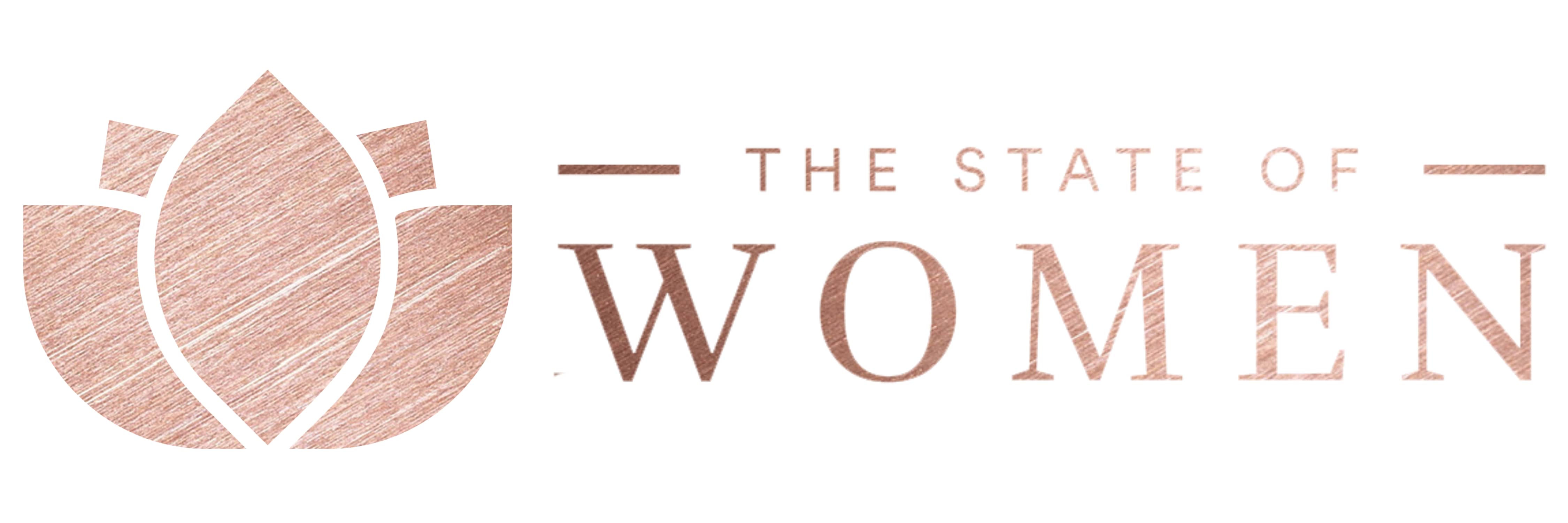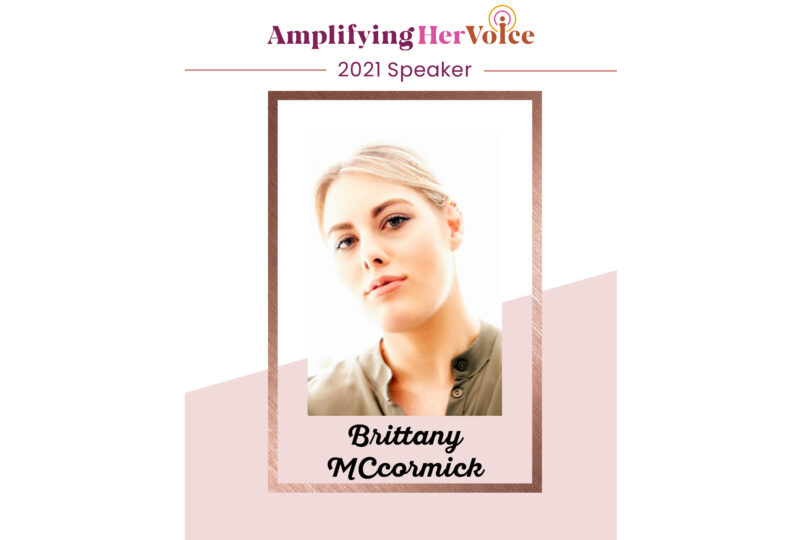Brittany McCormick is an advocate for acceptance: for herself, for those with disabilities, and for everyone facing struggles, setbacks, or obstacles—which, she points out, is everyone.
McCormick, a South African 24-year-old activist and motivational speaker with cerebral palsy, spoke at our recent Amplifying Her Voice: Stronger Together summit, urging viewers around the world to “see the ability, not the disability.”
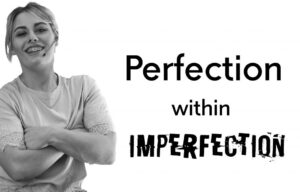 It’s a message that has been oversimplified to “motivate” non-disabled people by using those with disabilities as a source of shame, or to gloss over the lived realities of those with disabilities. That is not McCormick’s message. She emphasizes it’s not about pretending she or any person doesn’t have a disability. Her message focuses on the concrete value everyone has to add to the world and to the lives of others—and she stresses helping people see that value, in themselves and in others.
It’s a message that has been oversimplified to “motivate” non-disabled people by using those with disabilities as a source of shame, or to gloss over the lived realities of those with disabilities. That is not McCormick’s message. She emphasizes it’s not about pretending she or any person doesn’t have a disability. Her message focuses on the concrete value everyone has to add to the world and to the lives of others—and she stresses helping people see that value, in themselves and in others.
The vision and platform has allowed her to educate those around the world, to advocate for herself and others with disabilities, and to use her own experience as an opportunity to influence and motivate people.
McCormick is already making a name for herself as a motivational speaker, having spoken to business teams and giving interviews on several podcasts, in addition to delivering a talk at a local church. She also participates in races and other efforts on behalf of the 17 million people in South Africa with disabilities, and those around the world who want to learn more about living with disabilities—or who need a little inspiration in their own lives, whatever their situations.
“I want people to not feel scared anymore,” she says. “That’s really what it’s all about.”
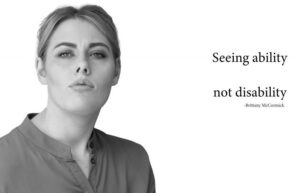 McCormick is candid about her disability, seeing it as an opportunity to shine a light on the treatment of people with disabilities as well as a way to encourage others. Neither effort, however, centers on her cerebral palsy as a burden and catalyst to shame non-disabled people into action. Rather, she teaches listeners to treat those with disabilities with respect and grace—to see the specific value they have to offer—and this, she hopes, will carry over into an appreciation for the value each person brings to the world.
McCormick is candid about her disability, seeing it as an opportunity to shine a light on the treatment of people with disabilities as well as a way to encourage others. Neither effort, however, centers on her cerebral palsy as a burden and catalyst to shame non-disabled people into action. Rather, she teaches listeners to treat those with disabilities with respect and grace—to see the specific value they have to offer—and this, she hopes, will carry over into an appreciation for the value each person brings to the world.
“What shaped my approach to living a positive life with a disability is realizing that you know what—and I only realized this later on when I got older—is that you can’t change it, and you just have to accept it and understand that you have a purpose, and work with the condition that you’ve been born with or given,” she says. “Don’t allow it to hold you back.”
On how to treat people with disabilities, McCormick says it’s all about conscious respect, and the basic dignity we all deserve.
“People make it complicated. They think ‘Oh my goodness, a disabled person, how do I cope?’ We want to interact, we want to go out for a drink, we want to go out for dinner. We’re people.”
When it comes to what to say, McCormick says, ask the person. No group of people—disabled or not—all want the same thing. For example, many people with disabilities prefer being referred to as “disabled people,” seeing the phrase as casual and normalizing. McCormick disagrees, preferring “person that has a disability” over “the disabled person.”
“It’s a part of you but it’s not who you are,” she says. Still, she stresses, the important thing is to check in with the specific person.
“It’s all about asking that person and saying ‘I see that you have a disability. How would you like me to talk about it, or talk to you about it?’”
As she grew up, peers and educators alike bullied McCormick.
“You still deal with it … to be honest with you, it doesn’t go away. It actually gets worse,” she says of the mistreatment. “But that’s where you grow as a person and you learn to understand, OK, why is this happening; what’s going on … and it’s because they don’t understand. It’s not because they’re being mean; the bottom line is they really don’t understand,” she says.
It was a catalyst for McCormick. She decided she would use her own accomplishments to educate others.
“People told me ‘Brittany, you’ll never be successful.’ Well, welcome to never,” she says. “I’ve just spoken in front of 300-plus countries. Welcome to never. Doctors told me I’d never walk. I just learned to walk on a treadmill. I did a 2.5 kilometer walk in honor of 17 million people with cerebral palsy. Welcome to never.”
She encourages anyone with a disability or obstacle to focus on the small steps they can take.
“You’re disabled; you’re not incapable,” she says. “The smallest steps create the biggest milestones.”
Of her specific goals, she remains determined.
“You might not be able to and you might not want to, but I will, and I want to, and I’m going to.”
McCormick believes acceptance and conscious effort, in our own lives and in how we treat one another, has the potential to motivate anyone.
“You forget the impact you make,” she says. Similarly, she says, we fail to appreciate what those with disabilities have to offer. “We just want three things, or at least I do: I want love, I want to be accepted, and I want to be given the chance to add value. Allow us to add value. Allow us to impact you.”
Allow us to give you something you’ve never had.
”
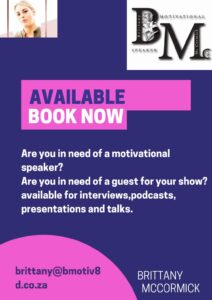 McCormick’s talk, “Seeing the Ability, Not the Disability,” will be available on our YouTube channel soon. To learn more or connect with McCormick, visit www.bmotiv8d.co.za.
McCormick’s talk, “Seeing the Ability, Not the Disability,” will be available on our YouTube channel soon. To learn more or connect with McCormick, visit www.bmotiv8d.co.za.
